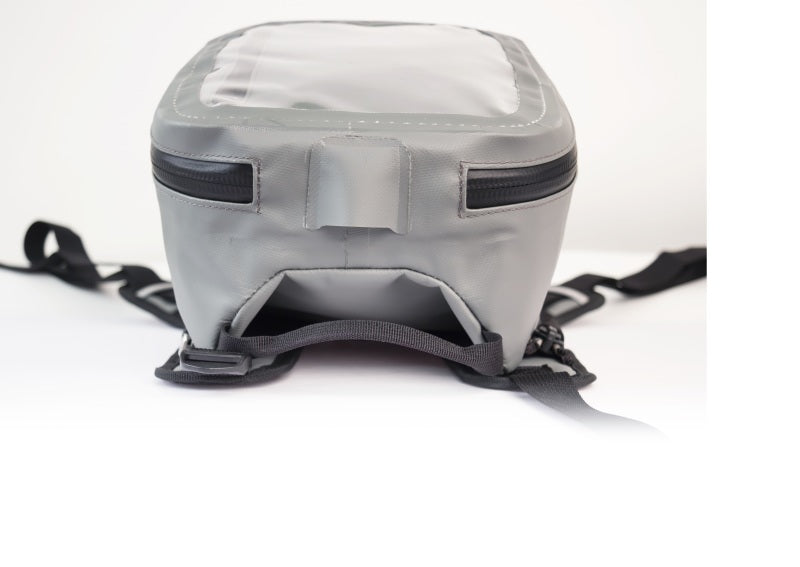Are you wondering how often you need to replace your car radiator?
Well, you've come to the right place!
In this article, we will explore the lifespan of car radiators and provide you with all the information you need to know about when it's time to replace them.
So, let's dive in and learn more about how often you should replace your car radiator!
Car Radiator Lifespan
So, how long can your car radiator really hang in there before you need to think about replacing it?
Well, the lifespan of a car radiator can vary depending on several factors. One of the most important factors is regular maintenance and proper care. If you keep up with routine maintenance, such as flushing and replacing the coolant as recommended by the manufacturer, your radiator is more likely to last longer. Coolant plays a vital role in keeping your radiator functioning properly by preventing corrosion and keeping the engine at the right operating temperature. Neglecting to change the coolant can lead to overheating, which can significantly reduce the lifespan of your radiator.
Another factor to consider is the quality of the radiator itself. Radiators made from high-quality materials and designed for durability are likely to last longer than those of lower quality. However, even with proper maintenance and a high-quality radiator, there may come a time when replacement is necessary.
On average, car radiators can last anywhere from 8 to 15 years, depending on these factors. It's essential to pay attention to any signs of trouble, such as leaks, overheating, or a persistent low coolant level. If you notice any of these issues, it's best to have your radiator inspected by a professional to determine if replacement is needed.
Remember, taking care of your car radiator is crucial for the overall health and longevity of your vehicle.
Signs of Radiator Failure
One clear indication that your vehicle's radiator may be failing is if you start to notice signs of overheating. The radiator plays a crucial role in keeping your engine cool by circulating coolant through its fins. If the radiator is not functioning properly, it can lead to the engine overheating, causing potential damage.
If you see the temperature gauge in your car rising above the normal range or if you notice steam coming from under the hood, these are signs that your radiator may be failing. Additionally, if you start to smell a sweet or pungent odor while driving, it could be a sign of a coolant leak, which can also be attributed to radiator failure.
Another sign of radiator failure is visible damage or leaks. Take a look under your car and inspect the area around the radiator for any signs of coolant leakage. If you see puddles of coolant or stains on the ground, it's a clear indication that your radiator is not working properly. You may also notice rust or corrosion on the radiator itself, which can be a sign of damage.
It's important to address radiator failure promptly, as it can lead to more severe engine problems if left unchecked. If you notice any of these signs, it's best to have your vehicle inspected by a professional mechanic to determine the extent of the radiator failure and take appropriate action to repair or replace it.
Factors Affecting Radiator Lifespan
The lifespan of a radiator can be influenced by various factors, such as the quality of coolant used, regular maintenance, and the driving conditions you encounter.
One important factor is the quality of coolant used in your radiator. Coolant helps to regulate the temperature of your engine by absorbing and dissipating heat. Using low-quality coolant or not replacing it regularly can lead to the buildup of deposits and corrosion within the radiator, reducing its effectiveness and lifespan. It's important to use the coolant recommended by your vehicle's manufacturer and to follow the recommended maintenance schedule for coolant replacement.
Regular maintenance is another key factor in extending the lifespan of your radiator. This includes checking and replacing the thermostat, hoses, and other components of the cooling system as needed. A malfunctioning thermostat, for example, can cause the engine to overheat, putting extra strain on the radiator. Additionally, regular inspections can help identify any leaks or damage to the radiator or its components, allowing for timely repairs or replacements.
Finally, the driving conditions you encounter can also impact the lifespan of your radiator. Extreme temperatures, driving in stop-and-go traffic, and frequently towing heavy loads can all put extra stress on the cooling system and decrease its lifespan. It's important to drive responsibly and take precautions, such as using the appropriate gear when towing, to minimize the strain on your radiator and other engine components.
By considering these factors and taking proper care of your radiator, you can help ensure its longevity and avoid the need for premature replacement.
Maintenance Tips for Radiators
To ensure a radiator's longevity, it's important to regularly check and replace the thermostat, hoses, and other cooling system components as necessary. One key maintenance tip for radiators is to regularly inspect and replace the radiator cap. The radiator cap helps maintain the proper pressure within the cooling system and prevents coolant from boiling over. Over time, the cap's seal can deteriorate, leading to coolant leaks and potential overheating issues.
By inspecting and replacing the radiator cap as needed, you can help prevent these problems and extend the lifespan of your radiator.
Another important maintenance tip is to regularly check the coolant level in your radiator. Low coolant levels can lead to overheating, which can cause significant damage to the radiator and other engine components. It's recommended to check the coolant level at least once a month and top it up if necessary.
Additionally, it's important to flush and replace the coolant according to the manufacturer's recommended intervals. Over time, coolant can become contaminated with rust and other debris, which can clog the radiator and hinder its performance. By flushing and replacing the coolant regularly, you can help prevent rust buildup and ensure optimal radiator function.
When to Replace a Radiator
If you notice any signs of coolant leaks, such as puddles under your vehicle or a constantly dropping coolant level, it's time to consider replacing your radiator.
A radiator is a crucial component of your car's cooling system, responsible for regulating the temperature of the engine. Over time, radiators can develop leaks or become clogged with debris, causing them to function less efficiently.
Regular maintenance, such as flushing the radiator and replacing the coolant, can help prolong its lifespan. However, if you start experiencing issues with coolant leaks, it's best to replace the radiator to avoid further damage to your car's engine.
The frequency at which a car radiator needs to be replaced can vary depending on several factors. The quality of the radiator, the type of vehicle, and the extent of maintenance performed all play a role. On average, a car radiator will last anywhere from 8 to 15 years.
However, it's essential to pay attention to any warning signs that indicate a replacement is necessary. Ignoring coolant leaks or a constantly dropping coolant level can lead to more significant problems down the line, such as engine overheating or damage.
Therefore, it's crucial to keep a close eye on your radiator's condition and replace it as needed to ensure the optimal performance and longevity of your car.
Common Radiator Problems
One common issue with radiators is coolant leaks, which can lead to engine damage if not addressed promptly. Coolant leaks can occur due to several reasons, including a cracked radiator, a damaged hose, or a faulty radiator cap.
When coolant leaks, the engine may not receive the proper amount of coolant, leading to overheating. This can cause serious damage to the engine components and significantly reduce the lifespan of your vehicle. It's important to regularly check the coolant level and inspect the radiator for any signs of leaks or damage. If you notice a decrease in coolant level or any signs of leakage, it's crucial to have the radiator repaired or replaced as soon as possible to avoid costly engine repairs.
Another common radiator problem is a decrease in pressure. The radiator is designed to maintain a certain level of pressure to keep the coolant flowing efficiently and prevent overheating. However, over time, the radiator may develop leaks or other issues that can result in a decrease in pressure.
When the pressure drops, the coolant may not flow properly, leading to inefficient cooling of the engine. This can cause the engine to overheat, leading to potential damage. If you notice that your engine is frequently overheating or the temperature gauge is consistently high, it may be a sign of a decrease in pressure in the radiator. It's essential to have the radiator inspected and repaired to restore the proper pressure and prevent further engine damage.
Choosing a Replacement Radiator
Now that you're familiar with common radiator problems, let's talk about choosing a replacement radiator.
When it comes to car radiators, they're not something that need to be replaced frequently. However, there are certain situations where a replacement becomes necessary. If your radiator is leaking, damaged, or severely rusted, it might be time to consider getting a new one.
When choosing a replacement radiator, there are a few important factors to consider. First and foremost, you need to make sure that the radiator is compatible with your car's make and model. Different cars may have different radiator specifications, so it's important to double-check before making a purchase.
Additionally, you should consider the type of fluid and heat exchanger you want for your radiator. Some radiators are made with aluminum cores, while others have copper cores. Each material has its own advantages and disadvantages, so it's worth doing some research to determine which one is best for your needs.
Ultimately, choosing a replacement radiator involves finding the right fit for your car and considering the specific features that'll ensure optimal performance and durability.
Benefits of Regular Radiator Inspections
Make sure you don't overlook the benefits of regular radiator inspections, as they can help prevent costly repairs and ensure your vehicle's cooling system is functioning at its best.
Regular inspections of your car's radiator can catch any potential issues before they become major problems. By checking for leaks, corrosion, or clogs, you can address these issues early on and avoid more expensive repairs down the line.
Additionally, regular radiator inspections can help maintain the efficiency of your car's cooling system. Over time, radiators can become clogged with debris or develop leaks, which can hinder the cooling process. By inspecting your radiator regularly, you can ensure that it's clean and in good working condition, allowing it to effectively regulate the temperature of your engine.
Another benefit of regular radiator inspections is that they can prolong the lifespan of your car. By catching any problems early on and addressing them promptly, you can prevent damage to other components of your vehicle's cooling system. This can help prevent overheating and potential engine damage, which can be costly to repair.
Regular inspections can also help you identify any signs of wear and tear on your radiator, allowing you to plan for a replacement if necessary. By taking the time to inspect your car's radiator on a regular basis, you can save yourself from unexpected breakdowns and costly repairs in the future.
Extended Lifespan for Radiators
Regular radiator inspections can significantly increase the lifespan of your vehicle's cooling system, saving you from unexpected breakdowns and costly repairs in the future. By regularly checking the condition of your car radiator, you can identify any issues early on and address them before they become more serious. This can help prevent overheating, which can lead to engine damage and the need for a complete radiator replacement.
One of the key benefits of regular radiator inspections is the extended lifespan for radiators themselves. During these inspections, you can check for any signs of leakage, corrosion, or damage to the radiator. By catching these problems early, you can take the necessary steps to fix them, such as repairing small leaks or replacing damaged parts.
Additionally, by monitoring the temperature gauge and coolant level during inspections, you can ensure that your radiator is functioning properly and maintaining the correct temperature for your engine. This can prevent overheating and keep your radiator in good working condition for a longer period of time.
Overall, investing in regular radiator inspections can help extend the lifespan of your car's radiator, saving you from the inconvenience and expense of having it replaced prematurely.
Savings with Proper Radiator Maintenance
Ensure you're saving money in the long run by properly maintaining your radiator. Regular maintenance can extend the lifespan of your car radiator and prevent the need for costly replacements. By taking a few simple steps, you can keep your radiator in excellent condition and enjoy the benefits of savings.
One of the most important aspects of proper radiator maintenance is keeping it clean. Over time, debris and dirt can accumulate in the radiator, obstructing the airflow and causing the engine to overheat. By regularly inspecting and cleaning your radiator, you can prevent these issues and avoid costly repairs.
Additionally, make sure to check the radiator coolant level regularly and top it up if necessary. Low coolant levels can lead to overheating and engine damage, so it's crucial to maintain the proper coolant level.
By following these maintenance practices, you can ensure your radiator stays in optimal condition, saving you money on expensive replacements in the future.
Proper radiator maintenance is key to saving money and avoiding the need for frequent replacements. Regularly cleaning your radiator and checking the coolant level will help prevent overheating and engine damage, ultimately saving you from costly repairs. So, take the time to maintain your radiator properly and enjoy the long-term savings it brings.
By following these simple steps, you can keep your car radiator in excellent condition and ensure its longevity.
Conclusion
In conclusion, taking care of your car radiator is essential for its longevity and proper functioning. By following regular maintenance tips and inspecting your radiator regularly, you can extend its lifespan and save money in the long run.
Signs of radiator failure, such as overheating or coolant leaks, should not be ignored, as they indicate the need for immediate replacement. When it's time to replace your radiator, make sure to choose a high-quality replacement that meets your car's specifications.
Remember, a well-maintained radiator will keep your engine cool and prevent costly repairs down the line. So, take the time to care for your radiator, and it will take care of your car.




